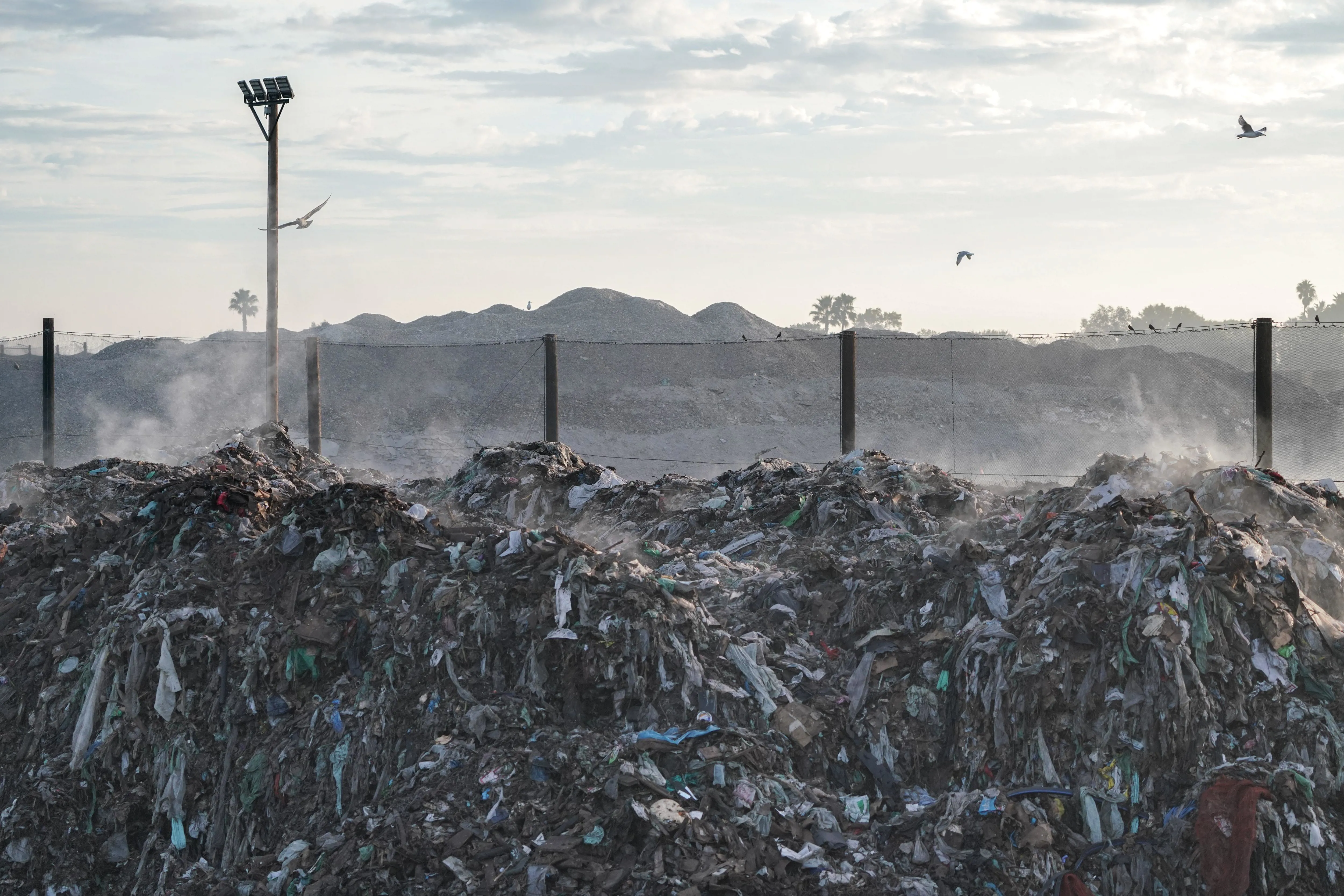Our throwaway society is the source of today's most challenging problems. Even though 88% of UK households now consider recycling an established norm, we're still throwing too much waste away and need to improve our recycling rates. Much of our rubbish ends up in landfill – a major source of pollution and greenhouse gases – instead of being recycled.
The good news is that the waste we're sending to landfill in the UK has been falling nearly every year since 2010. There were 12.9 million tonnes of biodegradable municipal waste sent to landfill in 2010. By 2020, that had fallen to 6.1 million tonnes.
It's all moving in the right direction, but that figure's still too high. That's why, at First Mile, we follow a 100% zero-to-landfill ethos.
Energy from waste and recycling
We offer a range of recycling services to UK businesses and households who share our passion for protecting the environment.
For anything that can't be recycled, we provide a commercial waste collection service. Absolutely none of this will go to landfill! Instead, we'll take any non-recyclable waste to an Energy from Waste facility, where it's incinerated. This process generates renewable energy that powers UK homes. Anything that can't be burnt is turned into building materials. Nothing goes to waste!
What are landfills?
Humans have been disposing of waste in the same way for thousands of years: burying leftovers in a hole in the ground or creating a designated area for rubbish. Ancient rubbish tips are known as ‘middens' and their shards of pottery and tools are a source of fascination for archaeologists.
Modern scrapheaps, or ‘landfills', contain the relics of our consumer society: electrical equipment, rotting food, paper, cardboard, wood, plastic and building materials. Like our ancestors, we still throw our rubbish into a hole in the ground (‘landfilling') or pile it up (‘landraising').
How long does it take for materials to decompose in landfill?
Landfills have systems in place that prevent or slow down biodegradation and decomposition. Without these, the landfills would sink, making them unstable.
As a result, it can take anything from a couple of weeks to a million years for things to decompose or biodegrade in landfill:
- Paper: 2 – 6 weeks
- Food waste: 6 months – 2 years
- Plastic bags: 10 – 100 years
- Aluminium cans: 80 – 200 years
- Disposable nappies: 450 years
- Plastic bottles: 450 years
- Glass: up to one million years
Aside from disposable nappies, all these materials are untapped resources. We don’t want them buried in landfill.
What’s wrong with landfill?
We should all be concerned about what happens to the waste in landfill because the process is a major source of pollution and contributes to global warming. It produces toxins, leachate and greenhouse gases which pollute our planet.
- Toxins
A lot of the stuff that ends up in landfill contains toxic substances. Discarded computers and other appliances contain all sorts of nasty stuff, including heavy metals, solvents and acids. - Leachate
Water filters through the waste in landfill and forms leachate – a highly toxic, foul-smelling liquid. Materials such as PVC and e-waste leach toxic chemicals as they break down. - Greenhouse gases
Landfill sites release methane, a greenhouse gas that's between 28 and 34 times more potent than carbon dioxide. UK landfills account for roughly 25% of our methane emissions.
Landfill gases have also been linked to negative health effects among those who live near landfills.
Old, disused landfills are also a concern, as they're increasingly exposed by coastal erosion, flooding and rising sea levels related to climate change. There are around 20,000 old landfills in the UK. And 5000 of them exist in areas at risk of flooding and coastal erosion.
What is food waste and why is it a problem in landfill?
Food waste refers to food that's thrown away, even though it's edible. This can happen anywhere along the food supply chain and it's a problem all over the world. About one third of the world's food is thrown away.
If you're wondering how much food is wasted in the UK, the answer is that we produced around 9.5 million tonnes of food waste in 2018. This ended up as pet food, compost, fuel for energy production — or in landfill.
More food ends up in landfill than any other material in our garbage. The top three types of food wasted in this country are bread, milk and potatoes.
Food in landfill is a waste of energy and resources. It also releases methane.
Why should we be recycling instead of using landfill?
Recycling in the UK saves over 18 million tonnes of CO² per year! Instead of sending our waste to landfill, we should be recycling as much as possible. It's a great way to make a positive difference to our planet because recycling:
- reduces greenhouse gas emissions
- slows down the extraction of natural resources
- saves environmental biodiversity
- uses less energy than producing new materials
- reduces the need for landfill
- replenishes valuable resources
- is part of the circular economy
What can you do to avoid adding to landfill?
Luckily, it’s possible to take action that will minimise how much you send to landfill. Here are just a few tips:
Follow the waste hierarchy:
- Prevent and reduce waste
- Reuse items as much as possible
- Recycle so that things get a second life
You can read the full guidance here.
Reduce food waste:
- Only buy as much as you need (try WRAP’s portion planner)
- Think twice before you throw away food (many food companies are removing ‘best-before’ dates)
- Freeze your leftovers
- Donate unwanted food
Reduce plastic waste:
- Use reusables instead of single-use plastic
- Swap from shower gel and liquid soap to bars of soap
- Avoid packaging made from plastics
- Choose bamboo instead of plastic toothbrushes
You can find more tips on the Plastic Free July website.
Use a dedicated recycling service like First Mile:
By choosing our services, you can be sure that none of your waste will go to landfill. Our food-recycling service sends food waste to make renewable energy and offers easy food-recycling solutions for any business. And our general waste generates green energy instead of going to landfill.



